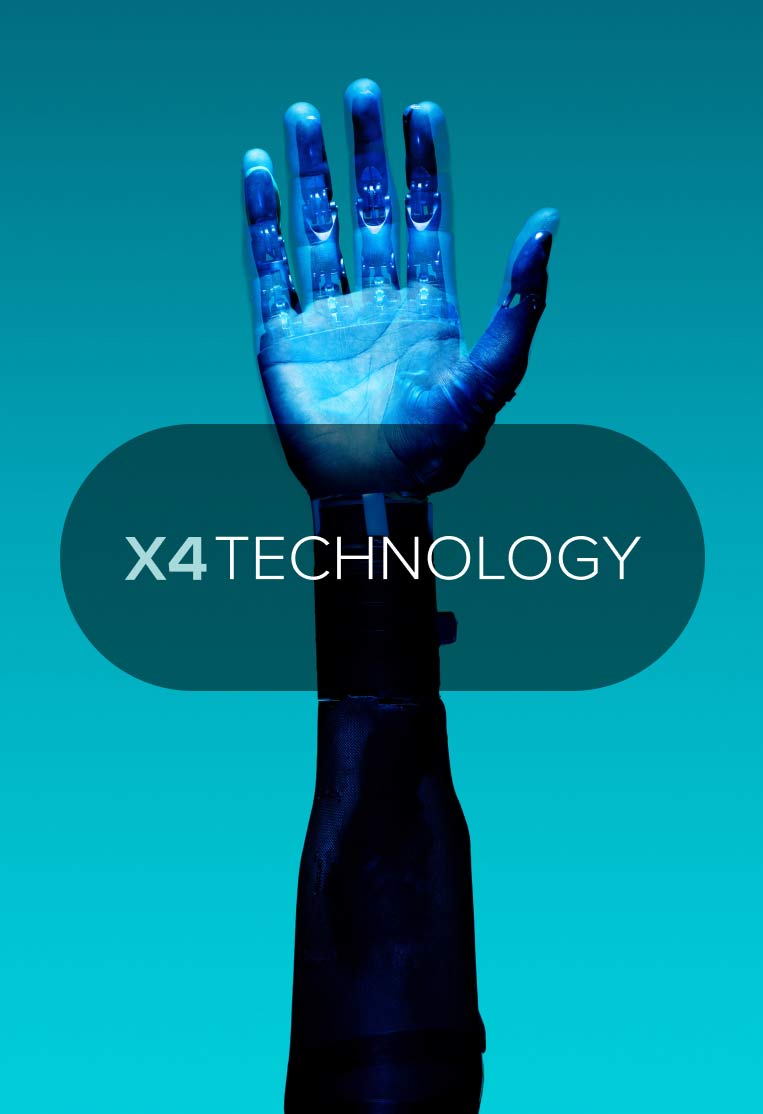The X4 Revolution: Reshaping Industries Through Convergence and Intelligence
The technological landscape is in a perpetual state of flux, driven by relentless innovation and the insatiable demand for efficiency, connectivity, and intelligence. At the heart of this transformation lies the burgeoning realm of “X4 technology,” a convergence of four pivotal domains that are collectively reshaping industries and redefining the boundaries of what’s possible. This article delves into the intricacies of X4, exploring its constituent elements, its transformative potential, and the challenges that lie ahead.
X4 technology is not a singular entity but rather a synergistic blend of four key areas: eXperience, eXponential Technologies, eXchange, and eXpertise. These elements, when interwoven, create a powerful framework for innovation and disruption.
1. eXperience: The User-Centric Core

The modern consumer, whether an individual or a business, demands seamless, personalized, and intuitive experiences. This emphasis on user-centricity forms the cornerstone of X4.
Personalization and Customization: X4 leverages data analytics and AI to tailor products, services, and interactions to individual needs and preferences. This goes beyond simple customization, aiming for a truly personalized journey.
2. eXponential Technologies: The Engine of Progress
X4 thrives on the rapid advancements in exponential technologies, which are characterized by their accelerating growth and transformative potential.
Artificial Intelligence (AI) and Machine Learning (ML): AI and ML are the driving forces behind automation, data analysis, and intelligent decision-making. They are enabling machines to learn, adapt, and perform tasks that were once exclusively human domains.
3. eXchange: The Network of Collaboration

X4 recognizes the importance of collaboration and data sharing in driving innovation. Open platforms, APIs, and data ecosystems are facilitating the exchange of information and the creation of new value.
Open APIs and Platforms: Open APIs enable developers to build applications and services that integrate with existing systems, fostering innovation and interoperability. Open platforms provide a foundation for collaboration and the creation of new ecosystems.
4. eXpertise: The Human Element
While technology plays a crucial role in X4, human expertise remains essential. X4 emphasizes the importance of developing the skills and knowledge needed to leverage these technologies effectively.
Data Science and Analytics: The ability to extract insights from data is crucial for driving informed decision-making. X4 requires a workforce skilled in data science, analytics, and machine learning.

The convergence of these four elements is creating a powerful force for transformation across various industries.
Healthcare
Personalized medicine: AI-powered diagnostics and tailored treatments.
Manufacturing
Smart factories: IoT-enabled automation and predictive maintenance.
Finance
Algorithmic trading: AI-powered investment strategies.
Transportation
Autonomous vehicles: AI-powered self-driving cars and trucks.
Retail
Personalized shopping experiences: AI-powered recommendations and virtual try-ons.
While X4 holds immense promise, it also presents significant challenges.
Data Privacy and Security
The increasing collection and sharing of data raise concerns about privacy and security. Robust data governance frameworks and cybersecurity measures are essential.
Ethical Considerations
The development and deployment of AI and other advanced technologies raise ethical questions about bias, fairness, and accountability.
Workforce Transformation
X4 is transforming the nature of work, requiring new skills and knowledge. Investing in education and training is crucial for preparing the workforce for the future.
Digital Divide
The benefits of X4 must be accessible to all, regardless of socioeconomic status or geographic location. Bridging the digital divide is essential for ensuring equitable access to technology.
Interoperability and Standardization
The seamless integration of different technologies and systems requires interoperability and standardization. Developing open standards and protocols is crucial for fostering innovation.
X4 technology is not a static concept but rather a continuous evolution. As technology advances and new challenges emerge, the X4 framework will adapt and evolve.
The rise of edge computing: Processing data closer to the source will enable faster response times and reduce latency.
In conclusion, X4 technology represents a powerful convergence of innovation that is reshaping industries and transforming society. By embracing the principles of user-centricity, exponential technologies, collaboration, and expertise, we can harness the transformative potential of X4 to create a more efficient, connected, and intelligent future.



